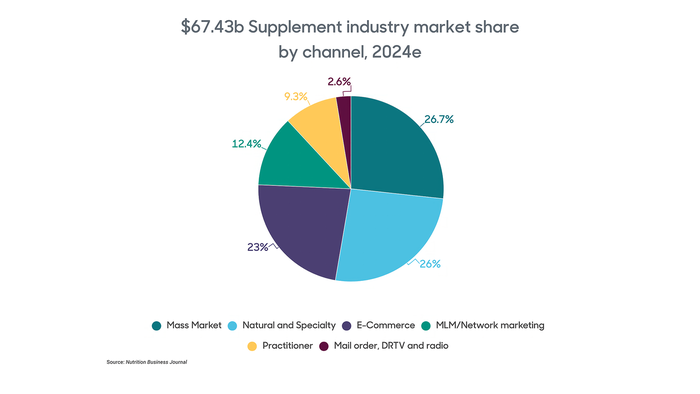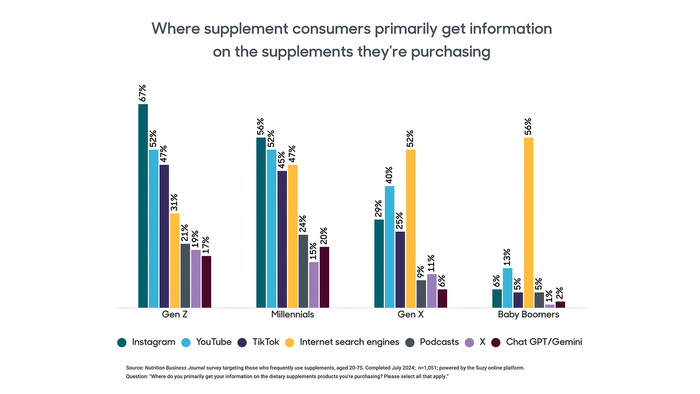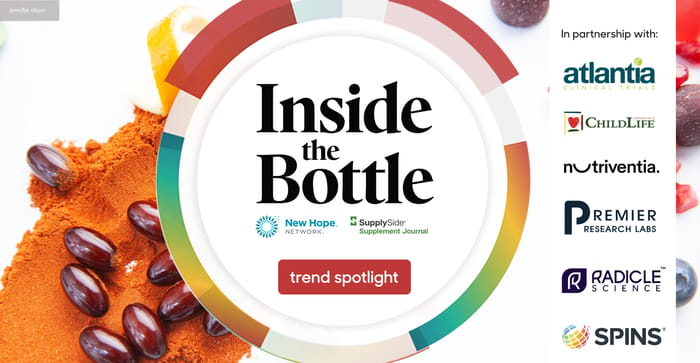
At a Glance
- Natural retailers can engage Gen Z shoppers by offering science-backed, effective natural products.
- Retailers should employ social media channels such as TikTok and Instagram to attract Gen Z consumers and boost sales.
- Curated product selections, rewards programs and live demos also will draw young adult shoppers to your store.
If you’re a retailer looking to stay competitive in the changing landscape of natural products and dietary supplements, understanding the shopping patterns and preferences of Gen Z is critical.
And let’s face it—this generation can be a bit confusing (says the millennial).
Having emerged from the womb with smartphones in hand, they’re also navigating the fine line of balancing social media and technology. They’re fiercely independent yet seeking community and connection. Their affinity for rapid-fire social content and videos dissolves when they find an intriguing long-form deep dive about the state of society.
It’s no surprise, then, that Gen Z’s shopping patterns may also twist your brain into a pretzel, even if you’re a Zoomer. There’s good news and bad news regarding this generation for natural products retailers. But first, let’s start with why this should matter for your store.
According to Whipstitch Capital, Gen Z materially outpaces the growth of buyers and dollars compared to older generations. Gen Z influence is expanding rapidly, eclipsing older generations both in buyer numbers and spending power. Translation: They matter. And where they’re shopping matters too.
Naturally, we wanted to understand Gen Z’s channel preferences, particularly around the nutrition and dietary supplement category. Our research findings challenged the oft-held assumption that Gen Z is turning to Amazon or TikTok Shop more than other generations for their purchases.
According to a New Hope Network survey of more than 1,000 consumers between the ages of 20 and 75 who frequently use supplements, Gen Z shoppers are buying less online compared to Gen X and millennials. They’re also, surprisingly, the least likely to purchase their supplements from Amazon compared to other generations. While that may feel like “good” news to natural products retailers, hold on a second: This generation is also more likely to make supplement purchases in mass-market retail than other generations.
This means they’re returning to brick-and-mortar stores, but not showing a preference for independent and small natural chains. In 2024, mass market is expected to become the largest sales channel for supplements, presenting a challenge for natural retailers when it comes to this category and Gen Z specifically.

According to estimates, the Mass Market channel accounts for 26.7% of dietary supplements, followed closely by the Natural and Specialty channel, with 26%. E-commerce makes up about 23% of dietary supplement sales. Source: Nutrition Business Journal
The primary reason mass-market retailers appeal to Gen Z is likely due to the tactile, immediate experience of in-store shopping, especially when that experience features curated product offerings and loyalty rewards, according to research from McKinsey & Co. This information should encourage natural retailers to continue focusing on what makes their selections unique, specifically the attributes that will appeal to younger generations.
Plus, continue leaning into unique experiences delivered by sampling, in-store workshops or eye-catching displays and endcaps. McKinsey & Co. also reports that Gen Z shoppers are finding it easier to vet a product’s quality and ethical claims when they’re in store. Score one for naturals.
So yes, where Gen Z shops is one part of the equation. But understanding why they make certain purchasing decisions is also key to determining how best to connect with them.
Another important finding from New Hope Network’s research is that Gen Z shoppers are prioritizing price and effectiveness equally when purchasing supplements ... but they aren’t necessarily connecting effectiveness with science.
What does this mean for you? It’s time to step in and find creative ways to educate this demographic about the relationship between product efficacy and scientific backing. This could be as simple as offering educational content, hosting in-store or social media events featuring supplement experts or highlighting science-backed benefits on store shelves. This will not only help build confidence among your consumer base, but also support your supplement vendors that are investing in science.
The final piece of the Gen Z equation (for now at least) is social media. When it comes to social platforms, Gen Z is more likely than other generations to turn to Instagram and TikTok for information. While this may seem obvious, it’s also an interesting contrast to the data presented earlier around trending purchasing behaviors.
For natural retailers, this means strengthening social media presence to educate and engage with these shoppers before and after they make a purchase. How? Establishing partnerships with trusted health experts or micro-influencers who hold sway with Gen Z can help spread science-backed information about your supplements, ultimately driving this audience into your store.

When asked where they get information regarding the dietary supplements they purchase, Gen Z shoppers’ top three responses were Instagram, YouTube and TikTok, with 67%, 52% and 47%, respectively. Source: Nutrition Business Journal
Social media is a valuable tool for sharing educational content—through short videos, infographics or live Q&A sessions—which builds trust and loyalty among Gen Z consumers as they determine where to make their purchases. Additionally, consider hosting live in-store demos streamed online. Since Gen Z values authenticity, natural products retailers are in a prime position to leverage their ethical, high-quality and sustainable product lines on platforms such as Instagram and TikTok.
Tapping into social media, though, isn’t just for selling more products. It can also help your buyers and merchandisers identify which products to bring in. Your team should monitor conversations on platforms like Instagram and TikTok to identify trending products and categories among Gen Z shoppers. These insights can inform your supplement strategy, allowing you to stock products that align with current preferences.
The challenge—and the opportunity—lies in understanding Gen Z’s contradictions. By aligning your in-store experience and supplement offerings with the values that matter most to Gen Z and their evolving behaviors, you can stand out in a crowded marketplace and build lasting loyalty with this influential generation.
About the Author
You May Also Like
.png?width=700&auto=webp&quality=80&disable=upscale)





